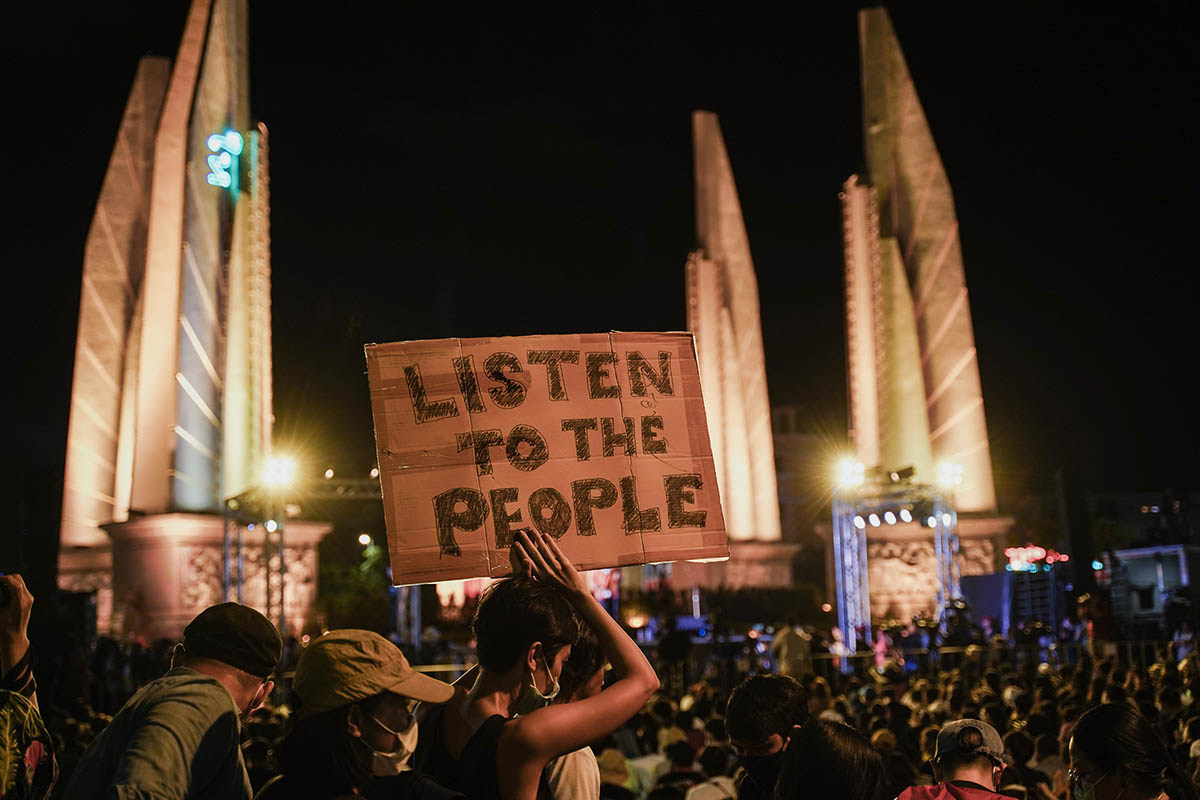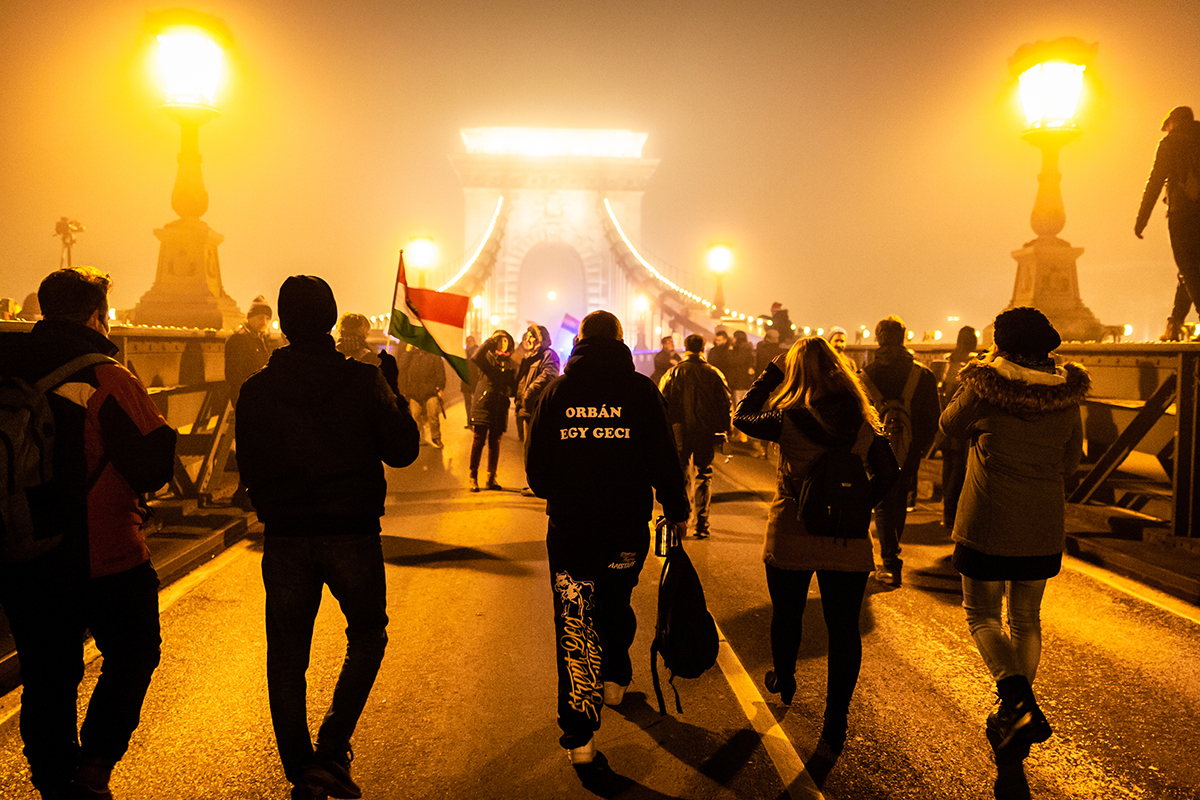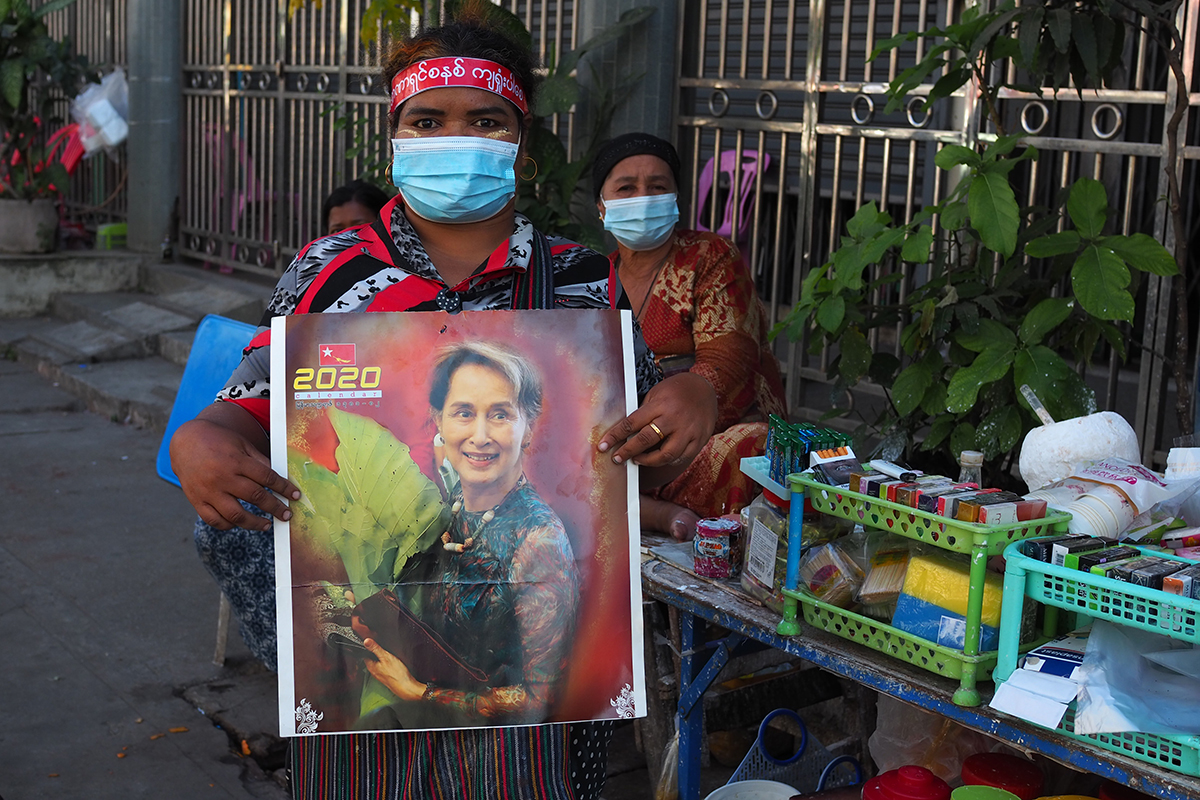
According to a new report, autocracies are on the rise around the world and the speed of change is increasing
By
For a long time, autocratisation has been a slow-moving trend, involving a gradual erosion of democratic norms and values. ‘That is changing,’ says Staffan Lindberg. ‘The speed of autocratisation is increasing.’
Lindberg is a political scientist and founder of the V-Dem Institute at the University of Gothenburg in Sweden, which recently published its 2022 democracy report, documenting the continuing decline in 2021, a year punctuated by war in Europe, five military coups and one self-coup (Tunisia). The report makes for worrying reading and reveals a very different world to the one of just ten years ago. When asked whether it has uncovered anything positive, Lindberg gives a despairing laugh. ‘No.’
According to the report, 70 per cent of the world’s population now lives under some form of autocratic regime. The last 30 years of democratic advances have been eradicated and autocrats are becoming bolder, less concerned about what the international community thinks or does. ‘Putin’s war is the epitome of this,’ says Lindberg.
With the report as a guide, we take a look at the decline of democracy in three different locations.
Hungary

On 15 September, the European Parliament declared that Hungary was no longer a full democracy. Eighty-one per cent of MEPs who voted backed the resolution, which designated the country a ‘hybrid regime of electoral autocracy’ with no respect for democratic norms.
Democracy has deteriorated in Hungary since 2018, when prime minister Victor Orbán’s party, Fidesz, won the national parliamentary election after campaigning on immigration and foreign interference, securing its third consecutive supermajority. Four years earlier, while speaking to ethnic Hungarians at a student summer camp in Romania, Orbán had declared his intention to build ‘an illiberal state’.
Orbán has been accused of using state media to limit independent press freedom and to discredit civil society – such as the NGOs Amnesty International and Human Rights Watch – and his political opponents. He’s passed electoral and major constitutional reforms that have allowed Fidesz to further consolidate its hold on power. According to the V-Dem report, the country has escalated towards ‘toxic levels’ of political polarisation, a situation that goes hand in hand with autocratisation, forming a ‘mutually reinforcing, vicious cycle’.
French MEP Gwendoline Delbos-Corfield, who drafted the recent resolution on Hungary, says the European parliament’s decision was clear and irrevocable. ‘Hungary is not a democracy. It was more urgent than ever for the parliament to take this stance, considering the alarming rate at which rule of law is backsliding in Hungary.’
Myanmar

Myanmar had been one of the top democratising countries in V-Dem’s 2021 Democracy Report, following a decade of liberalising political and economic reforms (including the relaxation of press censorship, amnesty for hundreds of political prisoners and new labour laws) that saw the country transition from a military junta to a partial democracy. That all changed in February 2021, when a military coup brought the democratisation process to an abrupt end.
Early in the morning on 1 February, Myanmar’s military detained state counsellor Aung San Suu Kyi and other members of the National League for Democracy (NLD) party, following unfounded allegations of electoral fraud after the NLD’s overwhelming victory in the November 2020 general elections. Power was handed to general Min Aung Hlaing, who declared a state of emergency. By day two of the coup, thousands of protestors had taken to the streets in peaceful pro-democracy demonstrations. After two unarmed protestors were shot, millions joined a general strike, part of the nationwide Civil Disobedience Movement. The military responded with brutal force.
Since then, Aung San Suu Kyi has been sentenced to 20 years in prison and numerous democracy campaigners have been executed after closed-door trials. The country remains under emergency rule, which was extended in August for another six months, with no chance of elections before 2023. As a result, Myanmar became one of five new closed autocracies in 2021 (the others are Chad, Guinea, Mali and Afghanistan).
Turkey

In the early years of his role as prime minister, Recep Tayyip Erdoğan was seen as a liberalising force in the Middle East; reforms paved the way for the start of EU membership negotiations. But after Erdoğan’s nearly two decades in power, Turkey’s bid to join the bloc is at a standstill, democracy is being eroded, and the prime minister is widely considered to be a dictator.
Following an attempted coup in 2016 by a faction within the Turkish Armed Forces, hundreds of thousands of people were detained and forced from government roles. More than 200 journalists were arrested and the event triggered wide-ranging restrictions on the press, lawyers, academics and human rights activists. Internet and social media censorship have also increased.
In March 2021, Erdoğan announced Turkey’s sudden withdrawal from the Council of Europe’s Convention on Preventing and Combating Violence Against Women and Domestic Violence, known as the Istanbul Convention, a human rights treaty signed by 45 countries and the European Union, claiming that it was incompatible with the country’s family values.
Drivers of Autocratisation

According to Lindberg, the academic community doesn’t have any evidence that can conclusively explain the rise in autocratisation, but he believes that there are a few plausible reasons.
The recent upward trend in autocratisation can be traced back to Vladimir Putin’s rise to power, as well as the election of Hugo Chávez as president of Venezuela, at the end of the 1990s. ‘They were the frontrunners,’ says Lindberg. ‘That was the beginning of this wave.’ In the past 20 years, Putin has worked to derail democracy in Russia, in former Soviet states and beyond. US intelligence has revealed that he may have authorised attempts to influence the result of the 2020 US election in Donald Trump’s favour, while the British government failed to investigate Russian interference in the EU referendum.
China, too, has been a destabilising force, spreading narratives of democracy being a deficient or ‘Western’ ideology that doesn’t apply to other cultures.
Lindberg also points to the growth of rightwing extremist groups across several countries, which have taken advantage of the unregulated freedom of speech of the Internet era to reach new audiences, and the government spread of misinformation, particularly in North Africa and the Middle East, but also in Malta, the USA and the UK. ‘I’ve said this now a number of times: democracy dies with the lies. If you can lie, and be believed, then vertical accountability disappears.’
Finally, there’s the role that the enormous increase in inequality has to play. ‘The level of relative inequality has become extreme. We haven’t seen this in more than 150 years,’ says Lindberg. ‘These frustrations and fears for the future can be harnessed and used by political leaders.’



